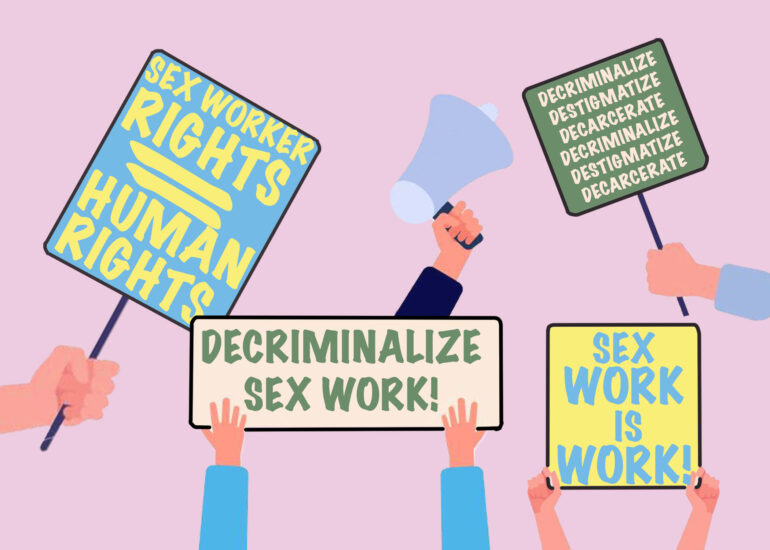For many generations, sex workers have been fighting for decriminalization.
Sex workers have been advocating for their rights in America since 1917. In 1917 more than 200 prostitutes marched on Central Methodist Church in San Fransisco to protest an anti-prostitution campaign led by the church’s pastor. In the 1960s, sex workers were among those in the Compton’s Cafeteria riot and the Stonewall uprising, both landmark events in the fight for LGBTQ rights.
Although sex workers have been advocating for their rights since 1917, the sex workers’ rights movement as it exists today has its roots in the 1970s, when groups like COYOTE(Call Off Your Old Tired Ethics) advocated for an end to laws targeting sex workers.
Decriminalizing eliminates all laws & prohibits the state and federal law enforcement officials from intervening in any sex work-related activities or transactions. It also de-prioritizes arrest and reduces interactions between police and sex workers. Another benefit of decriminalization is that it retroactively seals criminal records and provides a pathway for sex workers who want to transition into other employment; while providing allocated resources for people who have historically and currently are being criminalized for sex work.
Sex workers are often at risk of many human rights violations, including:
- Rape
- Violence
- Trafficking
- Extortion
- Arbitrary arrest & detention
- Forced eviction from their homes
- Harassment
- Discrimination
- Exclusion from health services
- Forced HIV testing
- Lack of legal redress
Sex workers around the world face a constant risk of abuse. Globally, sex workers have a 45 to 75% chance of experiencing sexual violence at some point in their careers and a 32 to 55% chance of experiencing sexual violence in a given year. Criminalization consistently undermines sex workers’ ability to seek justice for crimes against them.
The criminalization of sex work constantly undermines sex workers ability to seek justice for crimes against them.
Criminalizing adult, voluntary, & consensual sex – including the commercial exchange of sexual services is incompatible with human rights. A government shouldn’t be making decisions on personal matters, like that of two consenting adults, regarding who they can have sex with and how they’re allowed to do it.
Sex work is real work, and the time has come to treat it as such.



